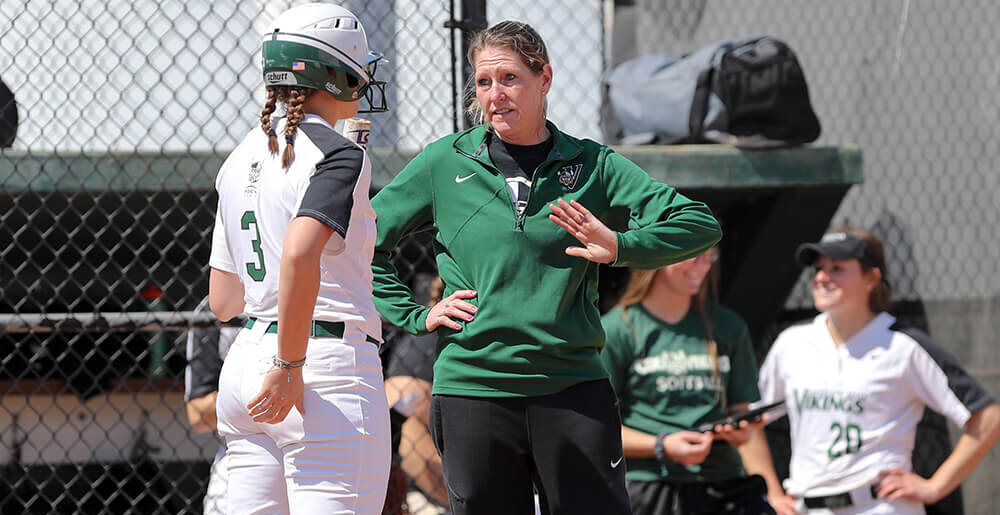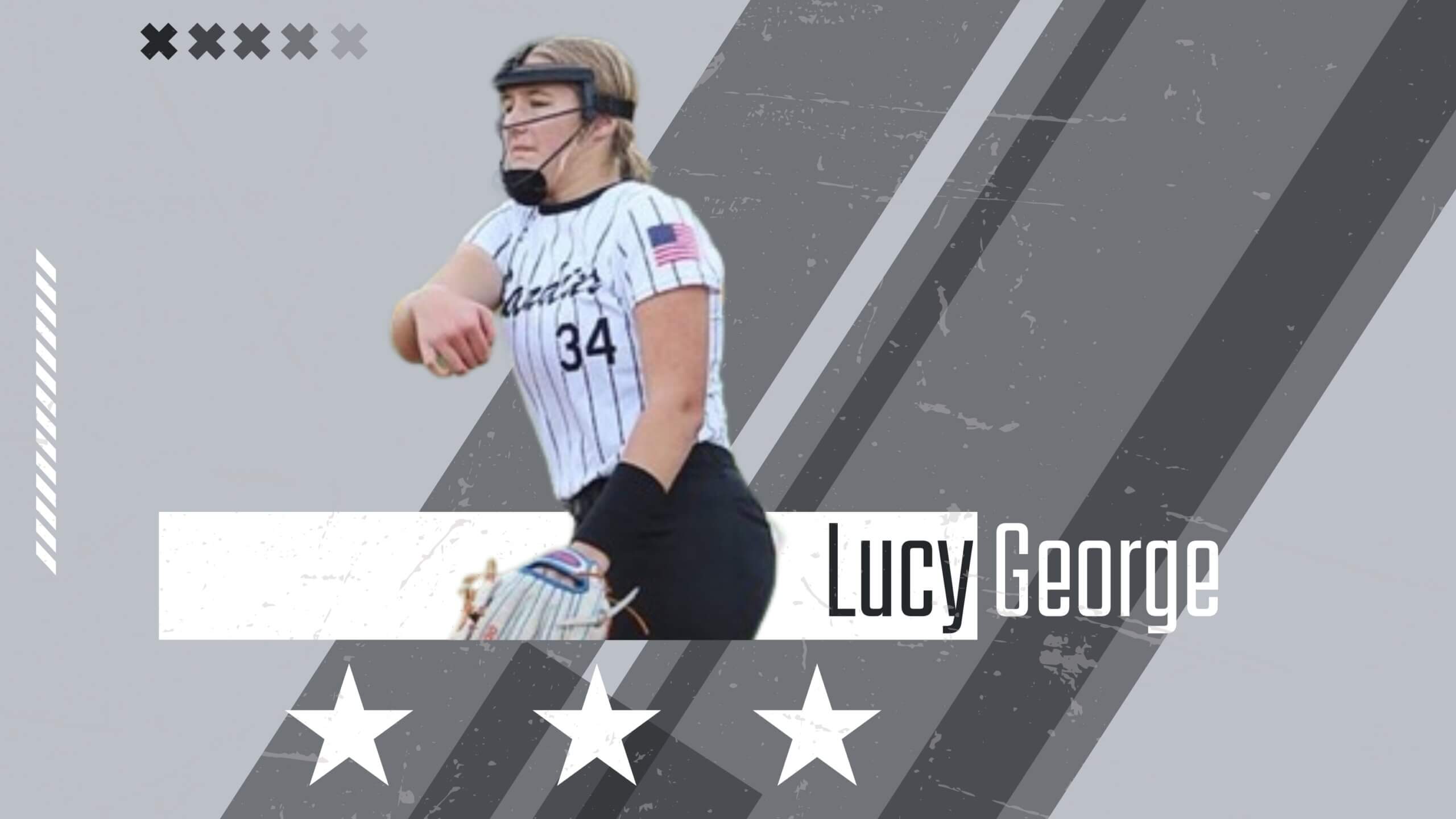
Extra Inning Softball has partnered with former DI softball coach Julie Jones (Akron, Cleveland State) and current Mental Performance and Mindset Coach to help give athletes, coaches and others in the softball world the “Mental Edge.”

Julie spent 26 years leading Division I softball programs with her mission being simple: to build smarter students, stronger athletes and better people.
Today, she also serves as an Adjunct Professor at Ursuline College teaching well-being and performance, mindset training, athletic coaching and career development courses in both the undergraduate and graduate studies programs.
Continuing her work of helping student-athletes reach their goals on and off the field, Julie regularly sends Mindset Made Simple Tips to players and coaches across the country as well as posting them on her site, SSB Performance.
Today’s “Mindset Made Simple focuses on Expectations… and how they can be good but also bad.
How? When we get stuck in the moment thinking about the expectations we set for ourselves, we can become trapped in focusing on what we SHOULD do and fail to do what we CAN do or what the situation is asking of us.
In other words, expectations are great but they can limit us if we start talking in our heads, forcing things, getting upset and putting negative pressures on what we “must” accomplish versus what the situation needs or calls for.
Here’s this week’s Mental Edge if you’d prefer to watch it:
*****
“Set high expectations,” they say. “It’s the only way to reach your goals,” they say.
And “they” are right. Sort of!
Did you ever expect something specific for your birthday and when you opened the box it wasn’t what you expected?
How did you feel? I’ve been there, too.
The gift was a perfectly good gift, but it wasn’t what you expected, so you are disappointed and maybe even a bit irritated. The whole “it’s a gift and most gifts are given with love or appreciation” goes right out the door.
Why?
Because you didn’t get what you expected. You wanted more and your thoughts were clouded, keeping you from seeing what was in front of you… which was probably pretty nice!

Or, it’s the constant talk of how great a movie is. Then you see it…and…. eh! I remember this scenario with Titanic.
Kid after kid came into my office and asked if I had seen the film, each overflowing with excitement about the story, the music… on and on!
Months later, I finally made it to the theater. Since it was a blockbuster, I’m assuming my lack of enthusiasm for the movie was partially based on the fact that I had REALLY high expectations… and that set me up for disappointment.
I was just okay (and not because I am less than lukewarm on Selene Dion lol).
Before I go on, let me state clearly that I am a big believer in setting high expectations. As a coach, we had high expectations on and off the field. I am certain these expectations played a part in the success of our athletes in many ways. Getting people to see beyond what they think is possible is critical for their growth.
So, I am not saying nix the expectations.
What I am saying is, when we are thinking about expectations during our performance, we often miss the mark.
Why?
It is pretty simple. We often become more concerned with what is expected that we are unable to focus on what we need to do to make the next shot or share the next point in our presentation (this happens in my recordings from time to time and five takes later, I am far from following my 4Ps of Peak Performance!)
Our expectations can shape our reality. We harbor a lot of emotion around our own expectations and the expectations of others, whether they are real or imagined. We are driven by what we think we “should” do and fail to do what we CAN do or what the situation is asking of us. We lose a bit of perspective and inflate the expectation and then become frustrated by our inability to reach our imagined measure of success.
An expectation is just that:
It is an imagined level of performance that we are striving to achieve.
Here’s the crazy part. They may serve as a limit as much as a motivator at times!
I dealt with the topic of expectations with three of my individual athlete meetings last night. All three were a bit different, but all are presenting in a way that is hindering each athlete from performing at his or her best.
All three are allowing expectations to keep them from acting. Why?
Because they are more concerned with what is expected than what they are actually doing to get there. We can only be focused on one thing at a time and as we are thinking “I should be beating this guy more handily” or something similar, we are taking their attention off of the next shot we need to take.
Then we hesitate, and you know what happens to those who hesitate. Every perceived unmet expectation leads to disappointment or frustration (just like the gift) and steals a little confidence and composure with it.
Once we start talking in our head about being behind in the count or behind where we expected to be in any way, tension builds. We force things. We get tight. The game speeds up. We start to go into “have to” scenarios and this can create a cycle of negative thoughts that can ruin our chances of getting ahead.
The same is true on the other side of the performance dichotomy.
I am not sure my former pitchers Amy Kyler (current head coach at Cleveland State University) and her teammate Amy Johnson have forgiven me yet, but I took one Amy out, apparently in the middle of a no-hitter, and put the other Amy in.
Fortunately, the no-hitter was preserved (because our team ERA was under 1.00 at the time…CRAZY) and I was sort of the hook since it was now a shared experience, which was the idea in the first place (sure, Coach!).
Just a note, Kyler’s ERA was .024 at the time. Not too shabby! (A little shout out to Coach Kyler in the pic this week!).
The reality is, they should have been thanking me because as soon as we realize we have a no-hitter going into the 6th, our expectations often turn to preserving the no-no and not the present moment thought of what we need to do to throw THIS PITCH!
This no-no focus puts a heavy mental weight on our back that hinders us from doing what we need to do to carry on with what got us here… one thing at a time… without much conscious thought!
Then throw in the preconceived expectations we have when we face certain competition…those we “should” beat or those who “should” beat us…and we spend most of our time thinking about why we “should” be doing something to meet the expectation and not nearly enough time focused on what we need to do to build momentum…one moment at a time.
This type of expectation focus gets us looking at the finish before we even start. This contributes to playing to our opponent’s level in not-so-good ways OR playing into the hands of our opponents instead of playing our game.
So how can manage expectations and do one thing at a time?

First, understanding that going into our performance with a plan in mind is important and this plan should include positive expectations, of course. We run through the scenarios we will face, possible obstacles, and all. Then, when we step up to perform, we let the expectations go and focus on what we need to do to be successful at the moment.
What is our routine? What is our “if…then” plan? This allows us to detach from our preset, imagined standards/expectations and allows us to remain focused on the process.
We have prepared. We have thought it through. We have planned.
This is no time to judge or keep a scoreboard in our head that says: “I should be doing this because this is the expectation of my coach/parent/self.”
Judging while performing takes our focus away. It does us no good to think, “that shot sucked.”
We need be saying, “Okay, next play.” We are not taking an accounting of what is going on while we perform. You are taking an accounting of what you need to do to face the situation at hand. Start thinking about what you should have done or should have said because that is what you were supposed to do and you are screwed!
Next, understanding that you can manage anything that happens on the court, field or in your presentation will be okay (this part is for me…I have a huge presentation tomorrow at a Leadership Summit!) because if I get myself into any type of bind, I know I have the skill and ability to get back on track.
I am in control. I can choose to pause, attack or roll with it. But whatever happens, I am ready to respond by focusing on what’s important now!
Mental performance coach, Brian Cain, uses the stock response of “good,” no matter what happens. Good. Then move on and use your talent and training to do what you need to do NOW!
The bottom line is this:
The sooner we can take our focus off what “should have” happened or what we “should be” doing, we will have the mental capacity to focus on what we get to do to make the situation the best it can be. We give ourselves an opportunity to make something happen no matter what happened before.
Expectations are necessary for growth. We need to expect to give effort, commit, communicate, learn and find ways to make every situation better. But expecting to keep a no-no or win just because we are better on paper takes our focus off of what we need to do to be our best.
Use your expectations wisely.
I would love to hear your thoughts on how expectations have helped or hindered you! Shoot me an email at [email protected] or text me at 234-206-0946. Looking forward to the conversation and learning more about expectations and their role in being our best!
Manage the moments…and no matter what happens, it’s all GOOD because it is helping us grow!
Have a great week!
Julie
To learn more from Julie check out her social media sites below; to contact her personally, she can be reached via email at: [email protected]
SSB Performance:
Website: www.ssbperformance.com
Facebook: /ssbperformance
Twitter: @SSBMindset
Instagram: /ssbperformance











